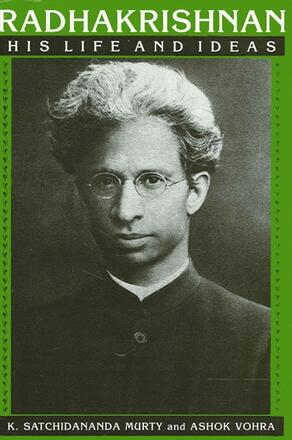
Radhakrishnan
His Life and Ideas
Alternative formats available from:
Description
This book presents a critical and comprehensive biography of Radhakrishnan. The authors explain how Radhakrishnan, who had a British knighthood and an Oxford Professorship, and who did not participate in India's struggle for freedom, became important in the political life of Independent India. They show how this philosophy professor and vice chancellor often expressed radical views, developed rapport with national leaders, and became President of Indian under Nehru without losing the goodwill and regard of either the British intellectuals or the colonial government of India. It is the thought of Sarvepalli Radhakrishnan that is most often presented in the West as "Hinduism. " Through an analysis of his autobiographical sketches, writings of those who knew him and worked with him, and documents, the authors come to grips with Radhakrishnan's complex personality which, in spite of his greatness and varied achievements, is all too human.
K. Satchidananda Murty is Chairman of the Indian Philosophical Congress and Central Institute of Higher Tibetan Studies, Sarnath. The author of a number of books on Indian thought and culture, Murty is a "Padma Bhushan," the first recipient of the B. C. Roy National Award in Philosophy, an Honorary Professor of the People's University of China, Dr. Phil. h. c. of the Soviet Academy of Sciences. Ashok Vohra is Reader in Philosophy at Delhi University. He taught philosophy for over a decade at St. Stephen's, Delhi and was Director (Planning and Research) of the Indian Council of Philosophical Research.
Reviews
"The authors have tapped a rich oral tradition to flesh out the rather meager autobiographical material on Radhakrishnan. Anecdotal, personal remembrances from those who knew him in various roles contribute significantly to the human portrait which emerges here. In addition, I appreciated the developed contextual element, which sets him not merely in places and times, but interactively with leading figures of his day. " — Hal W. French, University of South Carolina
"It is the first biography of Radhakrishnan that gives us some insight into the human side of the philosopher. " — Dr. Ishwar Harris, College of Wooster